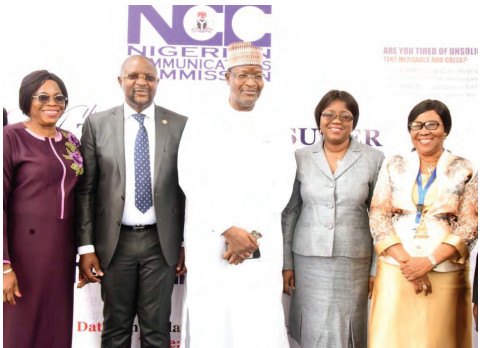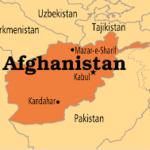The Nigerian Communications Commission (NCC) says it is rolling out palliatives to keep smaller telecom operators in the country afloat. These palliatives, according to NCC, range from reduction from the amount they pay for spectrum, allowing them to pay in installments, and palliative for payment itself. The Executive Vice Chairman of NCC, Prof Umar Garba Danbatta, who disclosed this on the sideline of the 84th Telecoms Consumer Parliament in Abuja Thursday, said the details of the palliatives would be made public soon. He said: “These palliatives range from reduction from the amount they pay for spectrum and others that will be made available as soon as the memo requesting the approval is received.
“I granted the approval yesterday (June 27, 2018) and the details will be made available. I went through the memo and I know there are palliatives. “There are palliatives for spectrum and there are reductions, there is also a palliative for payment itself. We are introducing palliatives by way of installment payments, spreading the payment rather than total payment. “Information on the new palliatives will be provided in due course”. He said the NCC in partnership with other stakeholders in the industry would deploying Rural Technology Solutions in areas which do not have access, to bridge access gaps. “We are going to do this at the rate of about 10 per cent per annum”, he said.
He said if NCC didn’t explore this means, going by the number of access gaps, it is going to take the NCC close to 20 years to close all the access gaps. “The rural population does not have the time to wait, they are not going to be patient for 20 years without access to telecommunication services. Therefore, there is need to find ingenious ways to these gaps within shorter period of time and technology fortunately for us presents itself and is amenable to solving this problem in shorter time”, he added. He said NCC had already deployed technology through a pilot scheme in about three locations in the country “and we are very happy about the outcome of this pilot deployment.” He said : “In partnership with those possession of these technology here in Nigeria, to reciprocate the deployment beyond the pilot, so that we can close 20 of those access gaps and then see what happens. But by my estimation, we can through rural technology solution bridge the gaps in about 3-4 years.

 Join Daily Trust WhatsApp Community For Quick Access To News and Happenings Around You.
Join Daily Trust WhatsApp Community For Quick Access To News and Happenings Around You.


